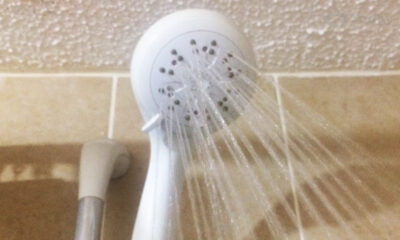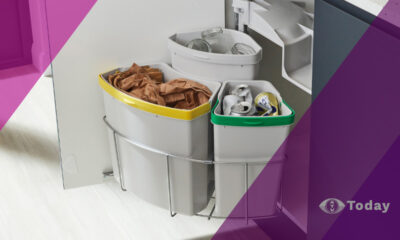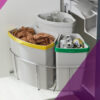Alcohol free and low alcohol beer could be getting stronger as part of a plan to reduce the amount of alcohol Britons are consuming.
Currently, ‘no alcohol’ beer must contain less than 0.05% alcohol by volume (ABV) while ‘low alcohol’ products must be under 1.2%. These limits could be increased to between 0.5 and 1% and 3% respectively under the next prime minister.
According to new research, almost a third of pub visits are completely alcohol-free as the trend for moderation amongst drinkers continues to grow.
However, Martin Preston, Founder and Chief Executive at Private Rehab Clinic Delamere, warns that increasing the percentage on low-alcohol beers could pose a risk to those wanting to stay sober or cut back on the booze long term.
“Low-alcohol and non-alcoholic beers can be a good alternative for those wanting to reduce their intake while still being able to enjoy the taste and social experience of a beer. By removing the alcohol, you’re taking out a compound that is toxic and could increase the risk of chronic disease.
“However, increasing the percentage within these alternative options not only defeats the object of low alcohol beer, but can have negative implications for those who are recently sober, or struggle with alcohol addiction.
“Those in recovery may think opting for “non-alcohol” beers will help them stay sober, because they contain little to no alcohol, however, drinks labelled as low or no alcohol can often be misleading, as they will contain the substance at some level.
“While increasing the percentage of alcohol in these drinks may not get a person drunk or cause significant health issues like regular alcohol, it may be more than someone is expecting and in turn, could trigger cravings and subsequent relapse.”
Martin shares with ATV Today Lifestyle five reasons why low alcohol beers can be a bad idea for those wanting to cut back.
They make you crave Alcohol
If you are serious about cutting back, it is often a good idea to steer clear of mocktails as they can make you crave alcohol more than when you drink normally. This is because a lot of brands or pubs managed to perfect the taste of low or no alcohol drinks to be nearly identical to the real thing.
Drinking a beverage that reminds you of the original drink, without the high of intoxication afterwards, can be frustrating when trying to cut back and could lead to giving up.
The term “Alcohol-free” can be misleading
Alcohol-free or “mocktail” style drinks can often be misleading when it comes to cutting back on the booze. In fact, some wines and beers that claim to be alcohol-free do still contain small amounts in them to give them a similar style taste to the real thing.
While it may seem like an improvement on the usual amounts of alcohol for someone who is trying to cut back, drinking mocktails or alcohol-free drinks in large amounts might mean you aren’t cutting back as much as you originally thought.
It can induce bad habits
Despite their low to no-alcohol content it is important to be safe and sensible when consuming so you don’t develop new bad habits.
Drinks like mocktails can be really easy to consume in large amounts because they are filled with fruity flavours and tastes that replicate alcohol.
It is therefore key for those trying to reduce their intake that they consume low or no alcoholic drinks in sensible amounts so that they don’t carry the habit of heavy consumption into their regular drinking habits.
They aren’t as healthy as you might think
Despite being much better for your health than regular alcoholic drinks, consuming a lot of them at once isn’t a good idea because they are quite often packed full of sugar and chemicals.
If one of your goals is to reduce the number of calories you consume from alcohol, it’s best to avoid mocktail style drinks so that you don’t end up consuming unhealthy amounts of sugar.
The taste can make you look for alcohol
Despite some non-alcoholic drinks tasting like their alcoholic counterparts, a lot of the time you don’t get the rich flavour that comes with normal beer or cocktails.
The problem with this is, the experience of non-alcoholic beverages is significantly underwhelming and might cause some individuals to give up on going dry or forget the reasons they did it in the first place.
If those cutting back do choose to drink mocktails as a substitute it’s key to remember that you might not get the same satisfaction as a regular alcoholic drink.












